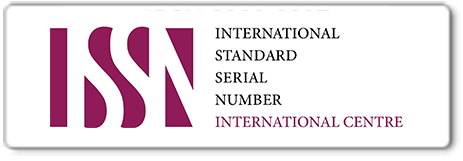The Influence of KPI (Key Performance Indicator), Workload and Career Development on Employee Performance at PT Pegadaian Pringgan Medan
DOI:
https://doi.org/10.59086/ijest.v4i3.674Keywords:
KPIs, Workload, Career Development, Employee PerformanceAbstract
References
Aguinis, H. (2019). Performance management (4th ed.). Chicago Business Press.
Ahmad, S., Wasim, S., Irfan, S., & Gogoi, S. (2023). Workload and employee performance: The mediating role of job stress in the banking sector. Journal of Organizational Effectiveness.
Albrecht, S. L., Breidahl, E., & Marty, A. (2022). Human resource management and employee well-being: Towards a new analytic framework. Human Resource Management Journal, 32(1), 1-17.
Al-Kahtani, N., Sohail, M. S., & Jabeen, F. (2021). Impact of key performance indicators on organizational sustainability: Evidence from Saudi Arabia. Sustainability, 13(5), 1-15.
Ana Nur'Aini & Fauziah, G. (2024). The effect of work stress and workload on employee performance at PT Adhya Graha Kencana Tangerang Banten. Journal of Management and Business Sciences, 15(1), 45–55.
Anastasya, N. (2019). The effect of workload on employee performance with work stress as a mediating variable. Journal of Business and Management, 21(3), 45-60.
Bakker, A. B., & Demerouti, E. (2020). Job demands-resources theory: Taking stock and looking forward. Journal of Applied Psychology, 105(8), 1-20.
Enggowa, N. M., Rompas, W. Y., & Plangiten, N. N. (2023). The Influence of Career Development on Employee Performance at the North Sulawesi Provincial Education Office. EMBA Journal: Journal of Economics, Management, Business and Accounting Research, 11(2), 210–219.
Evinita, L. L., & Kambey, J. P. (2022). Improving the performance of public servants based on career development, compensation, and employee interests. Deepublish.
Grawitch, M. J., Ballard, D. W., & Erb, K. R. (2022). Workload and burnout: The moderating role of job control. Journal of Occupational Health Psychology, 27(1), 1-12.
Hasibuan, M. S. P. (2020). Human resource management. The Earth of Scripts.
Hirschi, A., Nagy, N., Baumeler, F., Johnston, C. S., & Spurk, D. (2020). Assessing key predictors of career success: A meta-analysis. Human Resource Development Quarterly, 31(2), 113-138.
Huang, Y., Li, P., & Zhang, Z. (2021). The impact of KPI alignment on organizational performance: Evidence from China. Journal of Business Research, 130, 567-578.
Jain, R., & Singh, P. (2021). Modern HRM practices and employee performance: A systematic review. International Journal of Human Resource Management, 33(4), 1-25.
Koopmans, L., Bernaards, C. M., Hildebrandt, V. H., & van der Beek, A. J. (2021). Measuring individual work performance: Identifying and selecting indicators. Journal of Occupational and Organizational Psychology, 94(2), 315-341.
Kurniati, D., & Abbas, E. W. (2023). Key Performance Indicators (KPI) and employee performance: A case study in Indonesian public sector. Journal of Management Development, 42(1), 1-15.
Nurdin, A. (2020). Career development and employee performance: The mediating role of work motivation. Journal of Workplace Learning, 32(5), 1-14.
Osman, A., Anuar, M. A., & Rahim, M. Z. (2020). The psychological impact of KPI-driven work environments on employees. Journal of Business Ethics, 165(3), 1-14.
Parmenter, D. (2015). Key Performance Indicators: Developing, implementing, and using winning KPIs. Wiley.
Purwanto, A., Sudargini, Y., & Wijayanti, R. (2023). The effect of work discipline, leadership style, and organizational culture on employee performance. International Journal of Social and Management Studies, 4(1), 1-12.
Putra, R. (2018). Workload analysis and its impact on employee performance. Journal of Applied Management, 16(2), 1-10.
Robbins, S. P. (2016). Organizational behavior. Pearson.
Rohman, A., & Ichsan, M. (2021). Workload and employee performance: The moderating role of work-life balance. Journal of Business and Psychology, 36(4), 1-15.
Samsudin, S. (2023). Career development in organizations: A systematic literature review. Human Resource Development Review, 22(1), 1-20.
Sugiyono. (2019). Quantitative, qualitative, and R&D research methods.
Sutrisno, E. (2016). Human resource management. Gold.
Weng, Q., & McElroy, J. C. (2022). Career growth and employee performance: The mediating role of work engagement. Human Resource Management Journal, 32(3), 1-16.
Yati, I. (2018). The effect of Key Performance Indicator (KPI)-based assessments on employee performance at Bank Syariah Mandiri Jember Area Office. Journal of Islamic Economics and Business, 6(1), 65–72.
Downloads
Published
How to Cite
Issue
Section
License
Copyright (c) 2025 Nikita Stefani Tampubolon, Hafiza Putriani, Sri Putri Isabela Sipahutar, Cut Fitri Rostina, Fauzi Fauzi

This work is licensed under a Creative Commons Attribution 4.0 International License.
International Journal Of Economics Social And Technology under the terms of a Creative Commons Attribution 4.0 International License / CC BY 4.0 This license permits anyone to copy and redistribute this material in any form or format, compose, modify, and make derivative works of this material for any purpose, including commercial purposes, so long as they include credit to the Author of the original work.
Most read articles by the same author(s)
- Cut Fitri Rostina, Awu Arnol Alua, Andi Krisman Hura, Fauzi Fauzi, Influence Leadership, Motivation Employees, and Work Enthusiasm on Employee Performance , International Journal Of Economics Social And Technology (IJEST): Vol. 2 No. 3 (2023): September 2023
- Mil Adeven Luahambowo, Cut Fitri Rostina , Hafiz Al Assad Barus, Fauzi Fauzi, Influence Human Resources Quality, Competence and Leadership on Employee Performance at the Department of Communication and Information North Sumatra Province , International Journal Of Economics Social And Technology (IJEST): Vol. 3 No. 3 (2024): September 2024
- Elyza Julia Indriani Br.Panggabean, Putri Nadiarita Purba, Lely Wahyuni Pasaribu, Cut Fitri Rostina , Fauzi Fauzi, The Influence of Career Development, Rewards, and Work Discipline on Employee Performance at PT Rizky Agung Berkah , International Journal Of Economics Social And Technology (IJEST): Vol. 4 No. 3 (2025): Semptember 2025


















